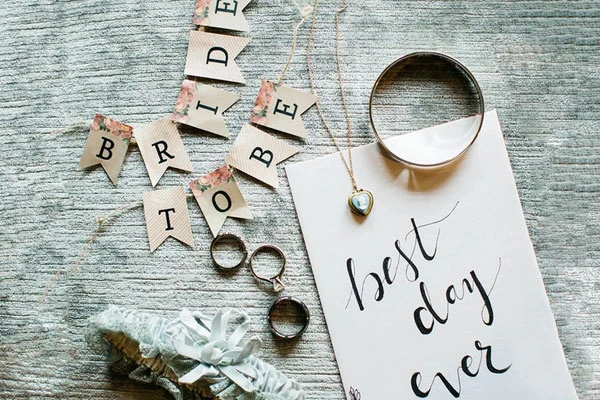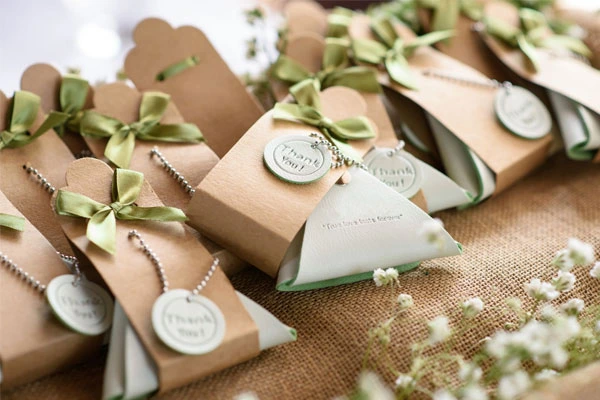Hosting a unique and memorable wedding ceremony requires careful planning and various skills. Below are several important items to consider for hosting an excellent wedding ceremony.
Creating a distinctive and unforgettable wedding ceremony is a culmination of meticulous planning and a diverse set of skills. Bringing together the elements that contribute to an extraordinary celebration demands thoughtful consideration and adept execution. Here are several pivotal components to contemplate in order to orchestrate a truly exceptional wedding ceremony:
Wedding Date and Time
Determining the exact date and time of the ceremony is crucial. Choosing a suitable venue depends on the number of guests you plan to invite. First, determine the precise number of guests, as it will influence the size of the venue. Decide whether your ceremony will take place indoors, such as in a hall, or outdoors, like on a beach, in a garden, a villa, or a hotel. The choice depends on the style and theme of your ceremony, and the selected venue should be suitable for your decoration and ceremony preferences.
If you desire a beautiful backdrop, consider selecting a venue with natural scenery, such as by the sea, mountains, or beautiful gardens. Choose a location that aligns with your budget. Ensure that the rental costs and associated services fall within your budget. Different venues may have different regulations, so make sure the chosen location complies with local regulations and required permits. If your guests are from out of town, ensure that there are suitable hotels and accommodations near the chosen venue.
Considering these factors, conducting thorough research and reaching out to event planning companies specializing in wedding ceremonies in Antalya will ensure that the selected venue aligns with your needs and preferences.
Budget:
Planning for a wedding is one of the crucial stages in organizing this ceremony. Initially, you need to determine your wedding budget and then calculate various expenses in detail. The following explanations are provided for budget determination and calculating different expenses. First, talk to your partner and decide how much money you can allocate to your wedding.
To determine the budget, consider the following:
Number of Guests: The number of guests affects the overall expenses.
Venue: The wedding venue (hall, home, outdoor space, hotel, etc.) plays a significant role in the costs.
Choosing the Day and Time: Weddings on popular days and peak hours tend to be more expensive.
General Wedding Expenses may include:
Engagement: Engagement costs may cover engagement rings, floral arrangements, engagement reception, photography, etc.
Wedding: This includes the bride and groom’s attire, engagement table, wedding cake, makeup and hair services, bridal car, music, and decoration (flowers, curtains, tables, chairs, lighting). Food and beverages cover costs related to catering based on the number of guests and your chosen menu.
Photography and Videography Services: Costs related to capturing photos and videos of the ceremony.
Determining the budget and calculating various expenses, including engagement, ceremony, decoration, food and beverages, etc., is essential. Always allocate a budget for additional and unexpected expenses. This includes costs arising from unforeseen changes, celebrations, and other unexpected gifts.
Considering these factors and determining the budget will allow you to calculate and manage various wedding expenses, ensuring a memorable ceremony within your budget constraints.
Decoration:
Designing and decorating the venue of a wedding ceremony can become one of the most attractive and creative aspects of hosting this event. Below are explanations regarding the design and decoration of the wedding venue.
Flowers:
Flowers play a significant role in decorating tables, curtains, and the wedding venue. The choice of flowers is based on the theme and style of the ceremony, and both fresh and artificial flowers can be used. Flowers are placed in areas such as tables, columns, and curtains.
Curtains:
Curtains, serving as the backdrop for the wedding ceremony, can be captivating and beautiful. Usually, soft and transparent fabrics are used for curtains. Curtains can be combined with flowers, lights, and other decorations.
Tables and Chairs:
Tables and chairs should harmonize with the overall decoration of the wedding ceremony. Beautiful table settings and chair covers can be used, and special attention should be given to decorating the bride and groom’s table.
Lighting and Illumination:
Proper lighting is crucial for creating a romantic and pleasant atmosphere. Hanging lights, candles, table lamps, and background lighting can be utilized to set the mood.
Cake and Sweet Table:
The cake and sweet table should be attractive and delightful. Decorations such as floral arrangements and charming cake toppers are used for the cake.
Other Decorative Elements:
Other decorations such as leatherwork, crowns, and traditional ornaments can be added to enhance the venue’s decoration.
Matching the Ceremony Style:
The elements above should align with the style of the wedding ceremony. For example, if your ceremony is simple, use decorations with natural and simple elements.
Use of Colors:
Colors are chosen based on your preferred color palette and are integrated into decorations such as flowers, curtains, and other complementary items.
Consultation with a Decorator:
Consulting with a professional decorator can assist you in creating a suitable design and choosing appropriate decorations.
When all these elements come together, your wedding venue transforms into an inviting, beautiful, and captivating space. The wedding atmosphere takes on a unique and appealing form, and the design and decoration of the venue, including flowers, curtains, tables, and chairs, create an impressive and attractive ambiance.
Host and Execution Team:
Selecting a host or program manager requires assembling a team for the ceremony, including service and hospitality staff, a driver and transportation service, a photographer and videographer, a DJ, and more.
Food and Beverages:
Choosing the menu and designing the reception program includes appetizers, main courses, desserts, beverages, etc., taking into account guests’ needs and preferences, such as food sensitivities.
Music and Entertainment:
Choosing a music group, singer, ceremony host, or DJ, as well as planning various entertainments like dancing, fire shows, etc.
Photography and Videography:
Hiring a professional photographer and videographer to capture special moments.
Bride and Groom’s Attire:
Selecting attire based on the couple’s tastes and style.
Hosting and Hospitality:
Planning hospitality for guests before and during the ceremony.
Invitation Cards:
Designing and printing invitation cards.
Prizes and Gifts:
Considering souvenir gifts and prizes for guests.
Program Schedule:
Creating a precise schedule for the ceremony day.
Equipment Rental:
Considering the rental of equipment such as tables, chairs, stages, etc.
Insurance:
Taking into account insurance related to the ceremony.
Security Measures:
Creating security plans for the ceremony.
Given this list, precise planning and coordination among all essential elements are crucial. Additionally, make good use of various resources and consult with relevant specialists and advisors as needed. In this regard, the Ramoursy collection can provide the best and most accurate planning for you.


